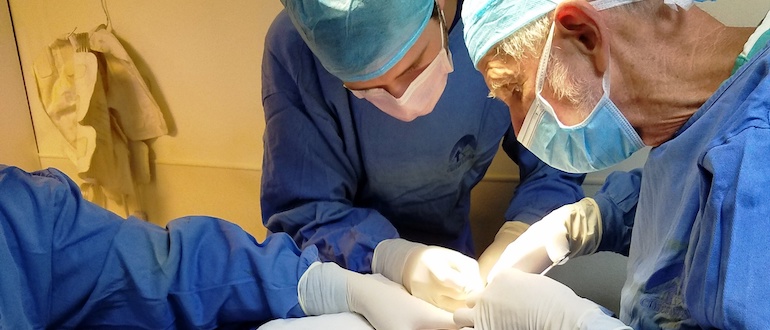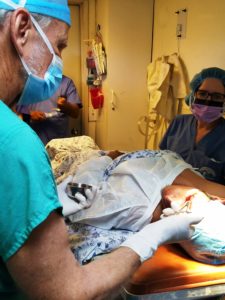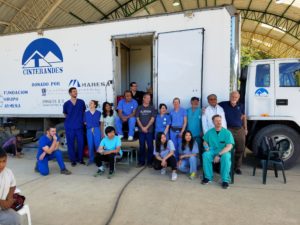
Ecuador 2017: Reflections from Team Member Jonathan Perkins
by Jonathan Perkins, 5th Year Medical Student at the University of Liverpool, UK
I recently completed a four week placement with the Cinterandes Foundation in Ecuador as part of my medical training.

I am a medical student in the UK and as part of my training we are required to complete a self-selected placement in between our 4th and 5th years of study, known as an elective. I am interested in pursuing a career in Surgery and wanted to choose an elective that would give me experience in this field.
The Cinterandes Foundation is a charity that has been providing medical and surgical care to the people of Ecuador who are most in need of it for over 25 years. The foundation owns a mobile surgery unit that can be driven to rural areas of the country, where the team of surgeons can operate on individuals with little to no access to healthcare.
I was fortunate enough to be working with the foundation during one of their monthly ‘missions’. This is where the mobile unit is driven to an extremely rural area of the country and set up to operate for several days. The mission that I was part of took place in Shaime, a settlement in the province of Zamora, extremely close to the Peruvian border. The journey to the town took some 14 hours.
 On this mission, the Cinterandes Foundation worked alongside ‘Mission to Heal’, a charity founded and run by Dr. Glenn Geelhoed. Dr. Geelhoed is an incredibly experienced and respected surgeon with a wealth of knowledge that he was keen to impart on the junior members of the mission. I certainly learnt a great deal from him and the other surgeons on the mission. A particular highlight for me was Dr. Geelhoed supervising me to remove an inflamed submental lymph node. Despite it being my first ‘operation’ I felt confident and assured with his guidance.
On this mission, the Cinterandes Foundation worked alongside ‘Mission to Heal’, a charity founded and run by Dr. Glenn Geelhoed. Dr. Geelhoed is an incredibly experienced and respected surgeon with a wealth of knowledge that he was keen to impart on the junior members of the mission. I certainly learnt a great deal from him and the other surgeons on the mission. A particular highlight for me was Dr. Geelhoed supervising me to remove an inflamed submental lymph node. Despite it being my first ‘operation’ I felt confident and assured with his guidance.
It was eye-opening to see how healthcare differed in a less developed country than the UK. I was surprised at how much of the equipment used in Ecuador was able to be re-used. Most equipment in the UK is single-use to reduce infection risk. I was therefore very surprised that the post-operative complication rate in the mobile theatre is lower than that of the US. It was also an incredible opportunity for me to get involved in a greater capacity than is possible in the UK. I was able to scrub in for most operations and if not I would assist the anaesthetist with pre-operative preparations such as cannulation, intubation and vital signs.
I learnt a great deal from my time in Ecuador and from the staff at both the Cinterandes Foundation and Mission to Heal. It gave me an opportunity to get more involved in healthcare and to experience a speciality that I am interested in.
I feel that I have learnt many vital skills, become more competent in my clinical abilities and have met some great people. I am so grateful to both these organisations for giving me the opportunity of a lifetime and I am sure that as a result of this experience I will be a better clinician as a result of it.